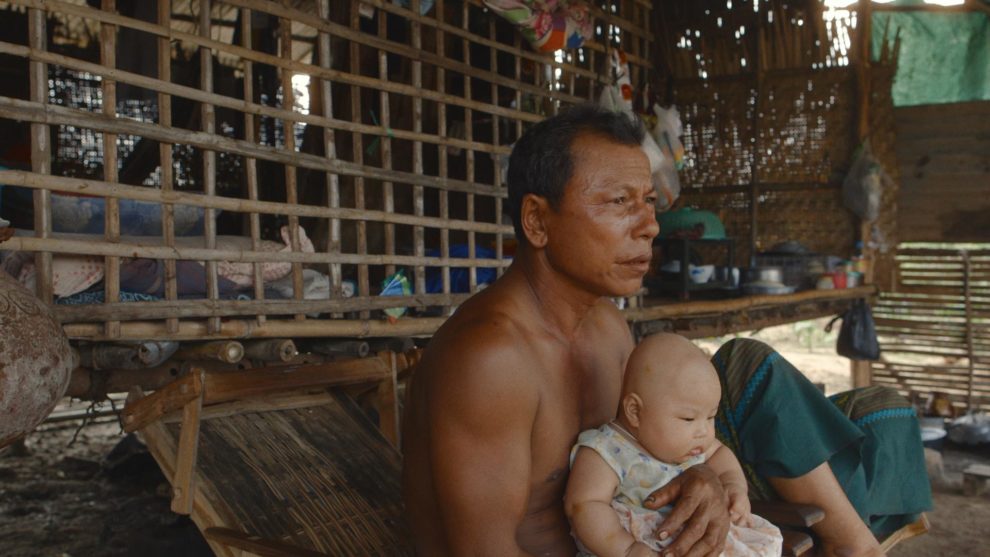“A Thousand Fires” is the newest full-length work of documentarian filmmaker Saeed Taji Farouky. Like his previous project, in this film too, the director spends a prolonged period of time with his subjects, an unregulated oil field proprietors Thein Shwe and Htwe Tin in Magway region of Myanmar.
A Thousand Fires is Screening at the Museum of the Moving Image
There isn't much of a story to “A Thousand Fires” per se. We see the family dig oil and live their lives but that's about it. There isn't any drama and tension here, except maybe for the fact that the son of the couple we follow tries to be a football player. But there is no tension or drama to his desire to go beyond his family's means here, nothing to root for, nothing cinematic or dramatic per se. It just feels natural.
This feeling of naturalness defines the entire documentary. If we can say anything about “A Thousand Fires” it is that it feels less like movie and more like truly spending time with Thein Shwe and Htwe Tin. We observe them drill for oil, look at their hands as they work the machines, caress them. Nothing more, nothing less.
It is precisely in this where Farouky's movie exceeds. It feels less like a movie with arcs and acts than a depiction of lived lives in the Magway region of Myanmar, where the documentary was painstakingly shot in the period of four years. That is not to say that “A Thousand Fires” is not engaging, far from it. It is a very interesting movie, but precisely because of its lack of easily apparent structure. This lends it a feeling of naturalness that lacks in many recent documentaries.
Of course, this all doesn't mean that “A Thousand Fires” is a boring or non-engaging experience. Not all. The documentary is one of the most pleasant and captivating things in recent memory. The reason for that is the engaging camerawork by Farouky who pays a very close attention to the hands of Thein Shwe and Htwe Tin.
We observe the husband and wife's hands up close as they tend the machines and take oil from the ground. It is dirty and it surely solutes the land they and their family live in, but they have no choice. In fact, the theme of pollution plays a big role in the documentary, some might say a major one. We see many scenes of liquids spilling in the land. Sometimes it is just water, sometimes – oil. And oftentimes, both. At some point we are so confused what is what, that everything starts looking like crude oil contaminating the land that the family lives in.
The theme of pollution is contrasted with that of cleanliness. We see members of the family washing themselves time and again through the runtime of “A Thousand Fires”. Mostly, it is the patriarch of the family, Thein Shwe, who washes his oily hands again and again, trying to make them clean and less shiny. But he never does, because the oil has seeped in his skin, in his entire being, and has defined him as a cog in a system he will never comprehend and we, the viewers, will change. Despite this, or maybe precisely because of it, “A Thousand Fires” is an essential piece of documentary filmmaking.















